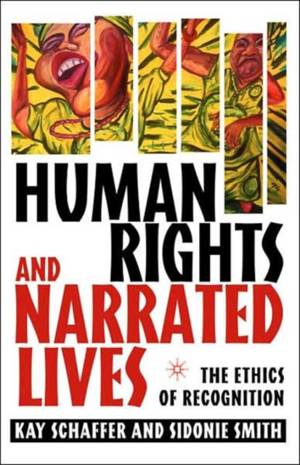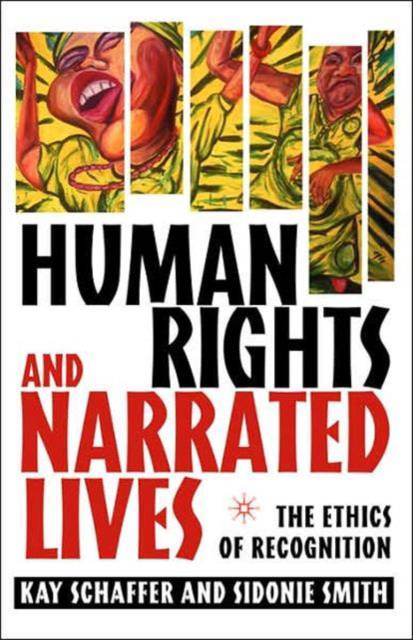
- Retrait gratuit dans votre magasin Club
- 7.000.000 titres dans notre catalogue
- Payer en toute sécurité
- Toujours un magasin près de chez vous
- Retrait gratuit dans votre magasin Club
- 7.000.0000 titres dans notre catalogue
- Payer en toute sécurité
- Toujours un magasin près de chez vous
Human Rights and Narrated Lives
The Ethics of Recognition
K Schaffer, S Smith
Livre broché | Anglais
111,95 €
+ 223 points
Format
Description
Personal narratives have become one of the most potent vehicles for advancing human rights claims across the world. These two contemporary domains, personal narrative and human rights, literature and international politics, are commonly understood to operate on separate planes. This study however, examines the ways these intersecting realms unfold and are enfolded in one another in ways both productive of and problematic for the achievement of social justice. Human Rights and Narrated Lives explores what happens when autobiographical narratives are produced, received, and circulated in the field of human rights. It asks how personal narratives emerge in local settings; how international rights discourse enables and constrains individual and collective subjectivities in narration; how personal narratives circulate and take on new meanings in new contexts; and how and under what conditions they feed into, affect, and are affected by the reorganizations of politics in the post cold war, postcolonial, globalizing human rights contexts. To explore these intersections, the authors attend the production, circulation, reception, and affective currents of stories in action across local, national, transnational, and global arenas. They do so by looking at five case studies: in the context of the Truth and Reconciliation processes in South Africa; the National Inquiry into the Forced Removal of Indigenous Children from their Families in Australia; activism on behalf of former 'comfort women' from South/East Asia; U.S. prison activism; and democratic reforms in the aftermath of the Tiananmen Square Massacre in China.
Spécifications
Parties prenantes
- Auteur(s) :
- Editeur:
Contenu
- Nombre de pages :
- 304
- Langue:
- Anglais
Caractéristiques
- EAN:
- 9781403964953
- Date de parution :
- 16-09-04
- Format:
- Livre broché
- Format numérique:
- Trade paperback (VS)
- Dimensions :
- 138 mm x 210 mm
- Poids :
- 367 g

Les avis
Nous publions uniquement les avis qui respectent les conditions requises. Consultez nos conditions pour les avis.






